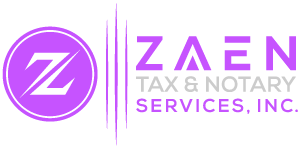
How Hiring a Certified Acceptance Agent Could Change Your Life with the IRS?
Introduction
In today’s complex world, understanding and fulfilling tax obligations is crucial to maintaining financial health and peace of mind. The Internal Revenue Service (IRS) plays a fundamental role in taxation processes, but dealing with the IRS can be overwhelming and confusing. This is where a Certified Acceptance Agent (CAA) steps in as a game-changer. In this article, we will explore the various ways hiring a CAA could transform your interactions with the IRS, simplify tax-related processes, and ensure compliance. By the end, you will discover how a CAA’s expertise can truly change your life with the IRS.
Understanding the IRS and Tax Compliance
Overview of the Internal Revenue Service (IRS)
The Internal Revenue Service (IRS) is the principal tax collection agency in the United States. It plays a vital role in administering and enforcing federal tax laws, aiming to ensure that taxpayers fulfill their obligations and contribute to the nation’s financial stability. Understanding the IRS’s purpose, functions, and structure is crucial for navigating the complex world of taxation.
The significance of maintaining tax compliance
Maintaining tax compliance is essential to avoid penalties, legal issues, and financial strain. It involves accurately reporting income, fulfilling tax obligations, and submitting tax returns within the specified timeframes. By adhering to tax regulations, individuals foster trust, stay within the boundaries of the law, and avoid potential repercussions.
Common challenges and complexities in dealing with the IRS
Dealing with the IRS can be overwhelming due to a myriad of complexities and challenges. From deciphering tax codes to understanding reporting requirements, individuals often face confusion and anxiety. The IRS’s stringent processes, paperwork, and regulations further contribute to the difficulties encountered during interactions. It is crucial to address these challenges effectively to ensure a smooth and hassle-free experience.
Introducing the Certified Acceptance Agent (CAA)
What is a Certified Acceptance Agent (CAA)?
A Certified Acceptance Agent (CAA) is an individual or entity authorized by the IRS to assist non-U.S. individuals with tax-related matters, particularly in obtaining a Taxpayer Identification Number (TIN) or an Individual Taxpayer Identification Number (ITIN). They serve as a bridge between the IRS and non-U.S. individuals and offer valuable expertise to navigate the complexities of tax processes.
Role and responsibilities of a CAA
A CAA plays a pivotal role in simplifying tax-related processes, enhancing compliance, and reducing the burden on non-U.S. individuals. They are proficient in IRS requirements and act as representatives, assisting with TIN and ITIN applications, providing tax return assistance, and ensuring accurate documentation. A CAA’s responsibilities include verifying identity documents, validating eligibility, and submitting applications on behalf of the taxpayer.
Qualifications and certification process for becoming a CAA
To become a Certified Acceptance Agent, individuals or entities must meet stringent qualifications set by the IRS. They need to demonstrate a comprehensive understanding of tax laws and regulations, complete specialized training, and pass rigorous examinations. By adhering to these standards, a CAA can provide competent guidance and support to individuals navigating IRS-related matters.
Simplifying the Taxpayer Identification Number (TIN) Application Process
The importance of a Taxpayer Identification Number (TIN)
A Taxpayer Identification Number (TIN) is a crucial identifier used by the IRS to track individuals for tax purposes. It is necessary for various financial transactions, including opening a U.S. bank account, filing taxes, and engaging in business activities. Non-U.S. individuals face challenges in obtaining a TIN, making it crucial for them to seek expert assistance.
Challenges faced by non-U.S. individuals in obtaining a TIN
Non-U.S. individuals encounter numerous hurdles when applying for a TIN. Language barriers, unfamiliarity with documentation requirements, and lack of knowledge about the process can lead to confusion and frustration. Furthermore, incorrect or incomplete information on applications can result in delays and potential rejection.
How a CAA can streamline the TIN application process
By enlisting the services of a CAA, the TIN application process can be simplified, expedited, and made more efficient. A CAA possesses comprehensive knowledge of the process and can guide applicants in providing accurate information and the necessary supporting documents. Their expertise ensures a smooth and successful application, saving applicants time, effort, and potential frustration.
Navigating the ITIN Application Process with Ease
Understanding Individual Taxpayer Identification Numbers (ITIN)
Individual Taxpayer Identification Numbers (ITIN) are used by non-U.S. individuals who are not eligible for a Social Security Number (SSN) but need to fulfill tax-related obligations in the United States. Obtaining an ITIN involves a detailed application process with specific requirements and documentation.
Complexities and requirements of ITIN application
The ITIN application process can be complex, as it requires adherence to specific rules and submission of valid supporting documents. Non-U.S. individuals may find it challenging to navigate the intricacies of the process, resulting in delays or rejection. Understanding the requirements and ensuring accurate submission is crucial for a successful ITIN application.
Utilizing a CAA to make the ITIN application process simpler and faster
A Certified Acceptance Agent (CAA) can greatly simplify the ITIN application process for non-U.S. individuals. With their extensive knowledge and expertise, a CAA can guide applicants in fulfilling the requirements, verifying supporting documents, and ensuring accurate completion of the application. By having a CAA by their side, individuals can overcome complexities and obtain their ITIN more efficiently.
Efficient Tax Treaty Benefits and Tax Return Assistance
The benefits of tax treaties for non-U.S. individuals
Tax treaties are agreements between the United States and foreign countries, designed to prevent double taxation and promote fair tax treatment for individuals engaging in cross-border activities. These treaties provide relief, reduce tax burdens, and encourage international trade and investment. Understanding tax treaty benefits is crucial for non-U.S. individuals seeking to optimize their financial situations.
Comprehending tax treaty eligibility and requirements
To benefit from tax treaties, non-U.S. individuals must meet specific eligibility criteria and satisfy requirements outlined in treaty provisions. These requirements may vary based on factors such as residency, income sources, and nature of activities. By comprehending eligibility and adhering to treaty provisions, individuals can make informed decisions that lead to significant tax savings.
Leveraging the expertise of a CAA for tax return assistance
Navigating tax return processes can be daunting for non-U.S. individuals, especially when tax treaties come into play. A CAA’s expertise can prove invaluable in understanding the intricacies of tax treaties and accurately preparing tax returns. From identifying eligible deductions and credits to ensuring compliance with treaty obligations, a CAA’s assistance can optimize tax returns and maximize potential savings.
Mitigating the Risk of Non-Compliance and Penalties
Consequences of non-compliance with IRS regulations
Non-compliance with IRS regulations can result in severe consequences, including penalties, fines, audits, and even legal action. Failure to meet reporting requirements, inaccuracies in tax returns, or lack of compliance with specific tax codes can expose individuals to financial and legal risks. Understanding the importance of compliance is vital for maintaining a healthy relationship with the IRS and avoiding unnecessary complications.
Understanding potential penalties for errors or omissions
Errors or omissions in tax-related matters can be costly, both financially and emotionally. The IRS imposes penalties for a range of offenses, including failure to file on time, inaccurate reporting, and negligence. Depending on the severity of the violation, penalties can range from monetary fines to imprisonment. Identifying potential penalties and taking appropriate preventative measures is crucial to minimize risks.
How a CAA can help minimize the risk of non-compliance
A Certified Acceptance Agent (CAA) can be an essential partner in mitigating the risk of non-compliance. By understanding IRS regulations, ensuring accurate and timely filings, and providing expert guidance, a CAA helps individuals navigate the complex tax landscape while minimizing the risk of penalties. Their thorough knowledge and attention to detail provide reassurance and peace of mind.
Expanding Business Opportunities with a CAA's Expertise
Exploring business opportunities for non-U.S. individuals in the U.S.
The United States offers numerous business opportunities for non-U.S. individuals seeking to expand their ventures or establish a presence in a thriving market. However, venturing into the U.S. market comes with its own set of tax complexities and considerations. Understanding tax obligations and optimizing strategies is crucial to leveraging business opportunities effectively.
Overcoming tax complexities when venturing into the U.S. market
The U.S. tax system can be intricate and overwhelming for non-U.S. individuals exploring business opportunities. Navigating tax codes, understanding reporting requirements, and staying compliant with tax laws can pose significant challenges. To overcome these complexities, expert guidance and support are essential to ensure a smooth and successful transition into the U.S. market.
How a CAA can unlock new possibilities and ensure tax compliance
By enlisting the expertise of a Certified Acceptance Agent (CAA), non-U.S. individuals can unlock new possibilities and seize business opportunities confidently. A CAA’s knowledge of U.S. tax laws, reporting frameworks, and compliance requirements empowers individuals to navigate the intricacies of the system while minimizing risks. Their guidance ensures compliance, maximizes tax advantages, and opens doors to a thriving business future.
The CAA Advantage: Bridging the Language and Cultural Gap
Language and cultural barriers faced by non-U.S. individuals
Language and cultural barriers often pose challenges for non-U.S. individuals when interacting with the IRS. Understanding complex tax-related terminologies, deciphering IRS communications, and effectively articulating concerns can be daunting without proper support. Overcoming these barriers positively impacts communication and enhances the overall taxpayer experience.
The importance of effective communication with the IRS
Effective communication plays a critical role in successfully navigating tax-related processes and resolving issues with the IRS. Clear and concise articulation of concerns, accurate understanding of IRS instructions, and timely responses contribute to a productive and collaborative relationship. Efficient communication ensures that non-U.S. individuals’ needs are met and misunderstandings are minimized.
How a CAA can bridge the language and cultural gap for smoother interactions
Certified Acceptance Agents (CAA) proficiently bridge the language and cultural gap, ensuring smoother interactions between non-U.S. individuals and the IRS. With their expertise in tax matters, multilingual capabilities, and cultural sensitivity, CAAs act as effective mediators and facilitators, translating complex tax concepts into easily comprehensible language. Their assistance empowers individuals to engage confidently with the IRS, fostering transparent and productive communication.
Overcoming Specialized Tax Challenges for Foreign Students and Teachers
Tax challenges unique to foreign students studying in the U.S.
Foreign students studying in the United States face unique tax challenges due to their non-resident status and specific tax obligations. From determining tax residency to understanding reporting requirements, foreign students must address these challenges to ensure compliance and optimize their financial situations. Expert guidance is crucial in navigating this specialized tax landscape.
Navigating tax obligations for foreign teachers in the U.S.
Foreign teachers working in the United States also encounter distinctive tax obligations based on their employment status and duration. They must adhere to specific tax codes, complete accurate reporting, and consider tax treaty provisions when applicable. Understanding these intricacies, while fulfilling teaching responsibilities, requires tailored guidance and support.
How a CAA can provide tailored guidance and support
Certified Acceptance Agents (CAA) possess specialized knowledge to address the tax challenges faced by foreign students and teachers. They consider individual circumstances, provide tailored guidance, and ensure compliance with IRS regulations. By leveraging a CAA’s expertise, foreign students and teachers can navigate tax complexities confidently and make informed decisions that optimize their tax obligations and financial well-being.
Enhancing Peace of Mind and Reducing Tax-Related Stress
The emotional toll of dealing with complex tax matters
For many individuals, dealing with complex tax matters can trigger stress, anxiety, and a sense of overwhelm. Juggling financial responsibilities, deciphering tax codes, and ensuring compliance can be emotionally draining. The impact of tax-related stress extends beyond financial aspects, affecting overall well-being and quality of life.
The importance of peace of mind in financial matters
Attaining peace of mind in financial matters is crucial for personal and professional growth. By addressing tax-related stress and anxieties, individuals can focus on their goals, relationships, and overall well-being. Peace of mind allows for better decision-making, improved mental health, and nurturing a sense of control over financial situations.
How hiring a CAA can alleviate tax-related stress and provide reassurance
Hiring a Certified Acceptance Agent (CAA) can alleviate tax-related stress and provide much-needed reassurance. By entrusting tax matters to a qualified professional, individuals can offload burdensome responsibilities, ensure accurate compliance, and gain peace of mind. A CAA’s expertise provides reassurance that tax-related matters are handled efficiently, leaving individuals free to focus on their personal and professional pursuits.
Choosing the Right Certified Acceptance Agent
Factors to consider when selecting a CAA
Choosing the right Certified Acceptance Agent (CAA) is crucial for a successful partnership. Factors to consider include the CAA’s expertise, reputation, experience, specialization, and track record. Assessing these factors helps individuals make an informed decision that aligns with their specific requirements.
Tips for assessing a CAA’s expertise and track record
When evaluating a Certified Acceptance Agent’s expertise and track record, it is beneficial to seek recommendations, read reviews, and review testimonials from previous clients. Additionally, exploring their certification status, affiliations, and commitment to ongoing professional development offers insights into their commitment to excellence and dedication to staying up-to-date with tax changes.
Making an informed decision for a successful partnership
Before engaging the services of a Certified Acceptance Agent, thorough research and due diligence are essential. Gathering information, asking relevant questions, and assessing qualifications help individuals make an informed decision that paves the way for a successful and fruitful partnership. A well-chosen CAA can truly transform the experience of dealing with the IRS and ensure optimal outcomes.
Note: This article is intended for informational purposes only and should not be considered as legal advice. Businesses should consult with legal professionals for specific advice related to their circumstances.
RECENT POSTS


Unveiling How Zaen Tax Saved Me from Overpaying Taxes — Shocking Revelation!

Why Seeking Professional Tax Consultation Could Be The Best Decision You’ve Ever Made!

Mistakes You Are Making By Not Using Our Notary Loan Signing Agent Service!

Why Our Notary Loan Signing Agent Service is the Best Solution for You!

Why Notary Services are the Secret Ingredient in Your Business

Why IRS Certified Acceptance Agents are Incredibly Important? The Answer Might Surprise You!

How Hiring a Certified Acceptance Agent Could Change Your Life with the IRS?

The Incredible IRS Pros They Don’t Want You to Know About – Certified Acceptance Agents!

Get Your ITIN Application Approved in No Time with Professional Help!

How to Unlock Tax Benefits You Never Knew You Were Entitled to With ITIN Application

Say Goodbye to Bad Credit Forever: Discover the Best Credit Repair Service!

Revealed: This is How You Can Improve Your Credit Score Overnight!

The Secrets to Easily Managing Immigration Forms Revealed by Notary Agent!

Frustrated with Immigration Forms? Not Anymore with this Notary Agent!

Ever Tried Fingerprinting Service by a Notary Agent? You Won’t Believe the Impact!

How a Notary Agent Takes Fingerprinting to the Next Level!

Ordained Minister or Notary Agent? Find Out Who Does What and Why You Need One!

The Unexpected Skills of a Notary Agent turned Ordained Minister

Can’t Wait to Get Your Passport Photos?? Zaen Tax Have you Sorted!!

Shocking facts about Employee Retention Credit service by a notary agent revealed

You won’t believe the incredible results this notary agent delivers with their ERC service!

This notary agent’s Employee Retention Credit service will blow your mind!

Are You Paying Too Much on Student Loans? This Notary Agent Can Help You Save!

Say Goodbye to Student Loan Debt Forever with the Revolutionary Notary Agent Method!

